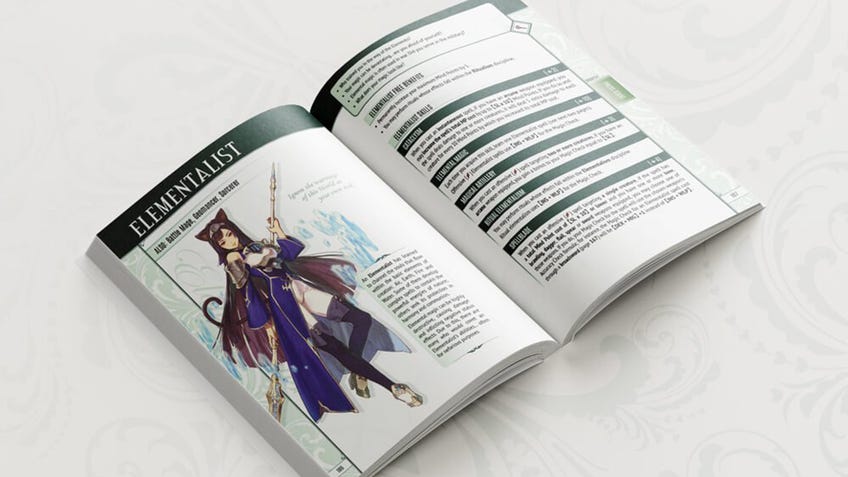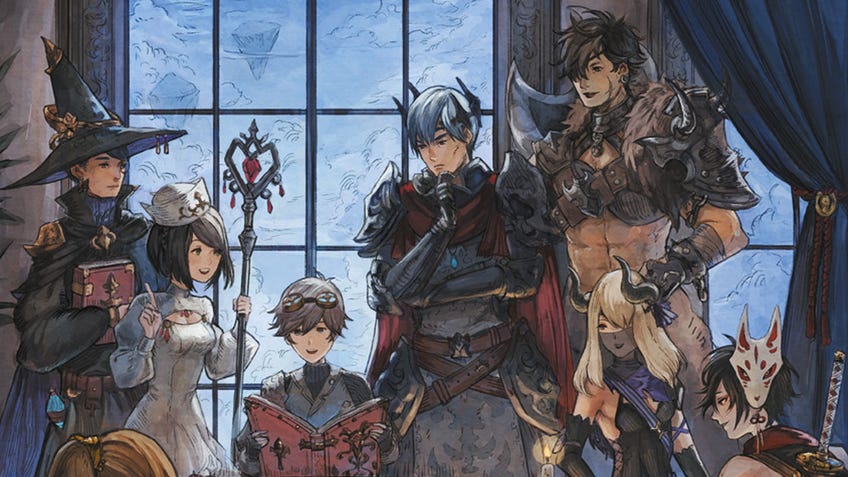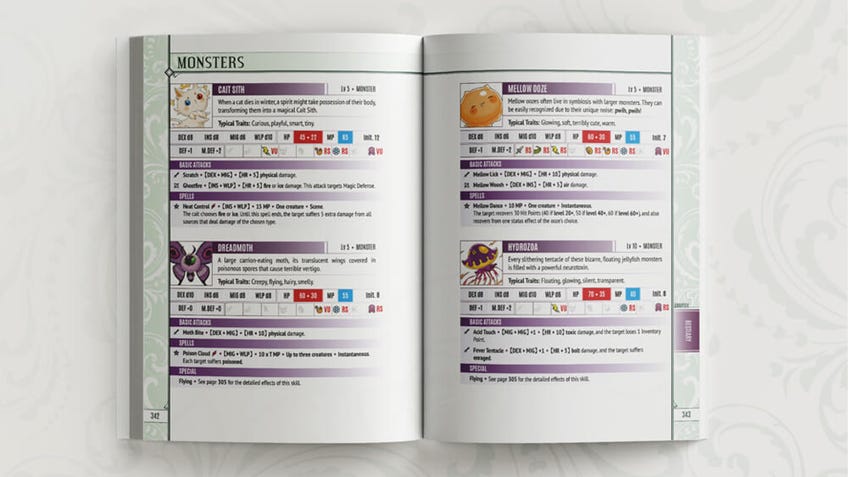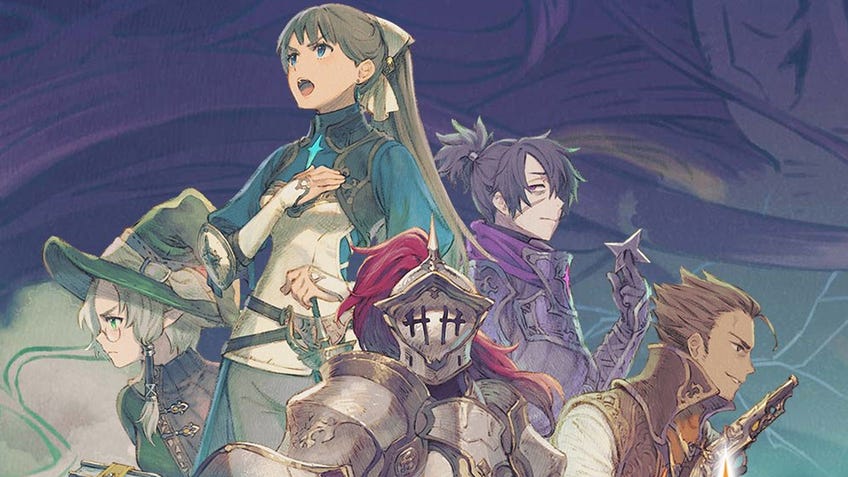Fabula Ultima is the Final Fantasy tabletop RPG I’ve always dreamed of
On Cloud nine.
Despite being one of the longest-running roleplaying video game series in history - this month will see the release of its sixteenth numbered instalment, 35-plus years after its first - Final Fantasy has somehow never had an official tabletop RPG adaptation.
The absence of a tabletop RPG is even stranger when you consider publisher Square Enix’s seemingly unflinching approach to turning its hugely popular franchise into everything from endless video game spin-offs, animated feature films and a trading card game to radio dramas, a mobile battle-royale game and even an unexpected crossover with Disney in the Kingdom Hearts series. While Final Fantasy has seen multiple board games based on its loveable chocobos and the in-game Cactuar Jackpot minigame of MMO FFXIV, a D&D-style TRPG has somehow eluded its attention throughout the decades.
Happily for fans, though, there is no shortage of tabletop RPGs directly inspired by the Final Fantasy series, from more direct fan-made adaptations of specific games to broader fantasy RPGs that wear their influences proudly on their belt-covered sleeves.

The latest - and perhaps the most accomplished so far - is Fabula Ultima. Created by Italian designer Emanuele Galletto and publisher Need Games, Fabula Ultima is an explicit love letter to Japanese RPGs - as acknowledged in its self-description as a ‘TTJRPG’. In particular, Final Fantasy. (Its own name loosely translates from Latin to the very on-the-nose ‘The Last Story’.)
Fabula Ultima carefully walks the line between imitation, inspiration and invention.
While Galletto’s game is far from the first tabletop RPG setting to draw from Final Fantasy, Fabula Ultima carefully walks the line between imitation, inspiration and invention to result in a game that manages to feel comfortably familiar while also being refreshingly full of new ideas.
While its items and monsters clearly use Final Fantasy’s blend of magic, steampunk and classic fantasy as a leaping-off point, the RPG steers clear of simply recreating the series’ familiar rigid classes of Black Mage, White Mage and more. Instead, players are given freedom to form their character from an identity - something that represents their place in the world of their making, which can similarly range from natural fantasy to high fantasy - a theme that drives their motivation or story (such as guilt or hope), and the origin that provides their background.

Just as Final Fantasy, characters’ relationships to the others in their party is just as important as their own story, too. Fabula Ultima turns this central concept into a key gameplay mechanic, with characters forming bonds through their feelings and interactions, both positive and negative - from admiration and affection to hatred or inferiority, loyalty to mistrust - that can then be drawn on in times of need to aid dice tests. In a more extreme case, characters who lose all their health points can choose to forgo surrendering - which ensures their survival, albeit with consequences - to sacrifice themselves to progress the party towards their grand aims. Eat your hearts out, Palom and Porom.
The same pool of fabula points used to invoke characters’ bonds and personal traits to re-roll and add to dice results is restocked by fumbling a roll, as well as being added to whenever new villains are revealed - which can happen outside of a scene with the players, much like pulling away to a cutscene in a video game.
The dice rolls themselves pull not from Final Fantasy or another video game, but from another tabletop game. In this case, it’s the gameplay of pastoral Japanese RPG Ryuutama that inspires Fabula Ultima’s reliance on a pair of dice to resolve tests against a set difficult level.
The dice used are determined by a combination of two of the game’s basic stats - dexterity, insight, might and willpower - or even the same trait twice when it makes sense. (For example, insight and willpower might be used to decode a conversation happening, while might and dexterity could be used for a more physical test.) Stats scale up from a d6 to a d12 depending on the character’s proficiency, and can be temporarily lowered by status effects such as being poisoned, enraged, dazed or weakened - something that Final Fantasy fans will feel immediately at home with.
Its rules outline a carefully considered, loving crafted tribute to Final Fantasy and other JRPGs that goes beyond being a good-looking emulation.
In line with Fabula Ultima’s beginner-friendly feel, combat works in much the same way. Your weapon determines the two dice rolled to check for a hit, before the higher result determines damage - meaning accuracy and damage are combined into a single roll. It’s a beautifully efficient and slick system that keeps combat moving quickly.
Adding to that feel of smooth video game-like combat is a flexible initiative system that alternates back-and-forth between player characters and enemies, with the players able to choose what order they act in during each round. It’s a neat encapsulation of the turn-based battles of Final Fantasy and its JRPG ilk, meaning that there’s room to react - for instance, by healing or striking - rather than awkwardly needing to wait your turn in a set order.

Fabula Ultima’s dedication to being the premier Final Fantasy tabletop RPG offering extends to its polished presentation, which is stuffed full of Nomura-like character designs and illustrations from artist Catthy Trinh and Moryo that could’ve been pulled straight from the pages of a walkthrough book circa 2000. There are playful nods to its video game roots too - both in the pixel art used for its equipment and items, and in the titles of its free Press Start and Load Game quickstart booklets, which include the basics of how to play, pre-generated characters and an introductory adventure.
Importantly, Fabula Ultima doesn’t just act the part. Its rules outline a carefully considered, loving crafted tribute to Final Fantasy and other JRPGs that goes beyond being a good-looking emulation to understand why people have fallen in love with the series over the last three decades - personal characters, meaningful relationships and unforgettable stories - and work to reconstruct that on the tabletop.
As a lifelong fan of the series, Fabula Ultima looks to be everything I could hope for from a Final Fantasy-like tabletop RPG. The video games aren’t just big swords, physics-defying hairdos and flashy summons (though there’s plenty of those, too); they’re stories of characters bonded together through a common goal, who overcome their personal challenges to achieve incredible aims and fight against evil whatever form it may take. Part of the reason the series persists after so long is because it’s relatable, both in its stories and gameplay; Fabula Ultima’s approachable rules and heartfelt embodiment of why these characters are drawn together and what they fight for clearly understands that.
While it may not be Final Fantasy in name (well, not exactly anyway), when the series inspires tabletop RPGs this good, who needs an official adaptation?


